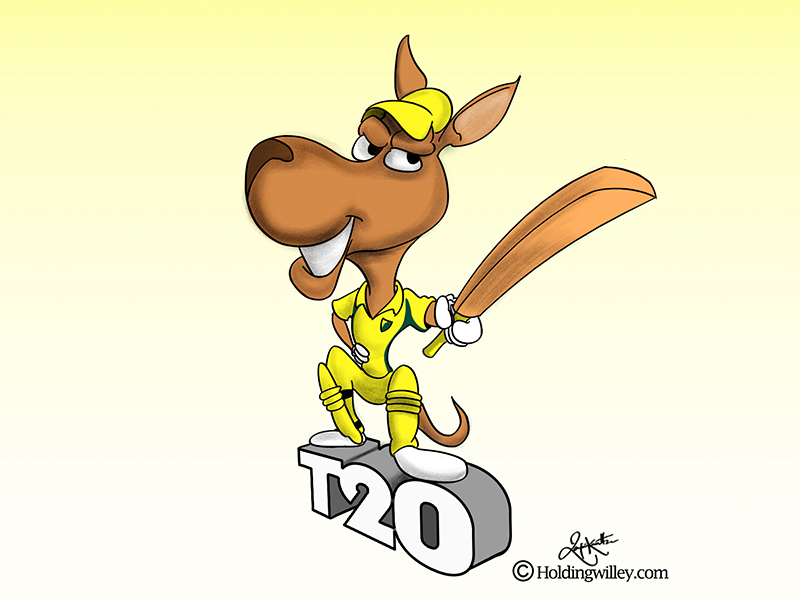 With five ICC Cricket World Cup trophies in their cabinet, Australia are the best team in the history of ODI cricket. They have also had years where they ruled Test cricket, almost invincible. But they have not managed to replicate the same authority in the shortest format of the game.
With five ICC Cricket World Cup trophies in their cabinet, Australia are the best team in the history of ODI cricket. They have also had years where they ruled Test cricket, almost invincible. But they have not managed to replicate the same authority in the shortest format of the game.
One of the major reasons behind the poor performance in T20Is over the years is the lack of stability in the team. For some mysterious reason, despite the country overflowing with cricketing talent, the national side has failed to build up a balanced T20I side. In the last two years (2016, 2017), Australia played 17 T20Is but won only eight of those.
Out of the six editions of the World T20 played so far, Australia have reached the semi-finals only three times. They went through to the final once, in 2010, where they lost to Paul Collingwood's England. They did not make it to the knockout stage in either of the two following World T20s.
Following the failure to reach the semi-final of the 2016 World T20, drastic changes took place in Australia's T20I selection panel. The revamped panel allowed Mark Waugh and Head Coach Darren Lehmann choose their own T20I squad for any named series.
Of the 12 T20Is Australia have played since the World T20 2016, David Warner, usually Steve Smith's deputy, captained the side in 9 matches, winning 8. A new era began for Australia in the shortest format and a lot of credit should go to Warner. Australia's recent win in the England-New Zealand Tri-Series was a huge achievement for Warner's boys as they were unbeaten in their five matches and they jumped from No. 7 to joint-No. 1 in the ICC T20 rankings by the time the series ended. From winning 8 T20Is in 2016 and 2017 to winning five out of five in 2018: Australia’s improvement is really impressive.
In the nine matches he led, Captain Warner scored 30 just once and averaged 17.66 with a strike rate of 143.24. This is clearly not what was expected of Warner in T20s, a format in which he made his debut for Australia even before his First-Class debut. He might not be playing to his potential with the bat due to his duties as captain, but what matters is that his strategies as the skipper have worked so far and produced fruitful results for Australia.
Meanwhile, Australia's permanent captain Steven Smith has led from the front in all the formats. Even in T20Is, Captain Smith has been in the runs. As skipper though, Smith has won four and lost as many from eight matches. In these games, he has aggregated 242 runs from 8 innings at 34.57, which include couple of fifties. However, his scoring hardly matters if, in the end, Australia is losing matches time and again. That's where the Warner factor has proved crucial. Warner has brought positive results as captain and, till date, he has not lost a single series leading Australia in T20Is.
There is another major factor behind Australia's sudden improvement in the shortest format, but it requires some unwrapping. When they consistently performed poorly, it was hard to understand as Australia hosted the Big Bash League (BBL), one of the higher quality domestic T20 leagues. And whether the tournament is domestic or international, Australians are known to compete very seriously.
Warner is the perfect example of what the top T20 leagues are capable of doing for national sides. It was Warner’s performances in the Indian Premier League (IPL) that caught the selectors' eye. On the basis of that, despite his lack of even one First-Class game, they handed him his Australia cap in T20Is.
This process started anew from 2016, with Australia reaping the rewards of the BBL. The first player who got noticed from the BBL was Perth Scorchers seamer Andrew Tye. In the 2014 and 2015 editions of the BBL, Tye finished with 14 and 13 wickets and was consistently among the top wicket-takers in the league. After impressing in consecutive years, Australia could not ignore him for the T20I side.
Tye’s Scorchers teammate, Ashton Agar, recently made his Test comeback and T20I return based on his consistency in BBL 2017. While Tye was the highest wicket-taker for Scorchers with 16 wickets, Agar was joint second with eight wickets with a miserly economy.
The pick of the players for Australia in the last month or so, without a doubt, is D'Arcy Short of the Hobart Hurricanes. In BBL 2017, he piled up a whooping 572 runs at an average of 57.20 and a strike rate of 148.57. Short received a direct promotion into Australia's T20I side as Warner's opening partner and Aaron Finch was pushed down to the middle-order to strengthen that area. With the likes of Finch, Glenn Maxwell and Marcus Stoinis, Australia's middle order is now as strong as the top-order.
Several of Australia's playing XI in the final of Tri-Series at Auckland were products of recent BBL seasons. Each one of them has contributed and justified their selection at some point of the series, so the selectors will be happy with Waugh and Lehmann's selection. The Current Australia side is new, young and has embarked on their journey as a new era to fulfill the country’s hopes of bringing back laurels in the shortest format - a World T20. The only ICC trophy missing from their cabinet.
Fast. Lite. Innovative. Shareable. Download our HW Cricket App, for Android and iOS!